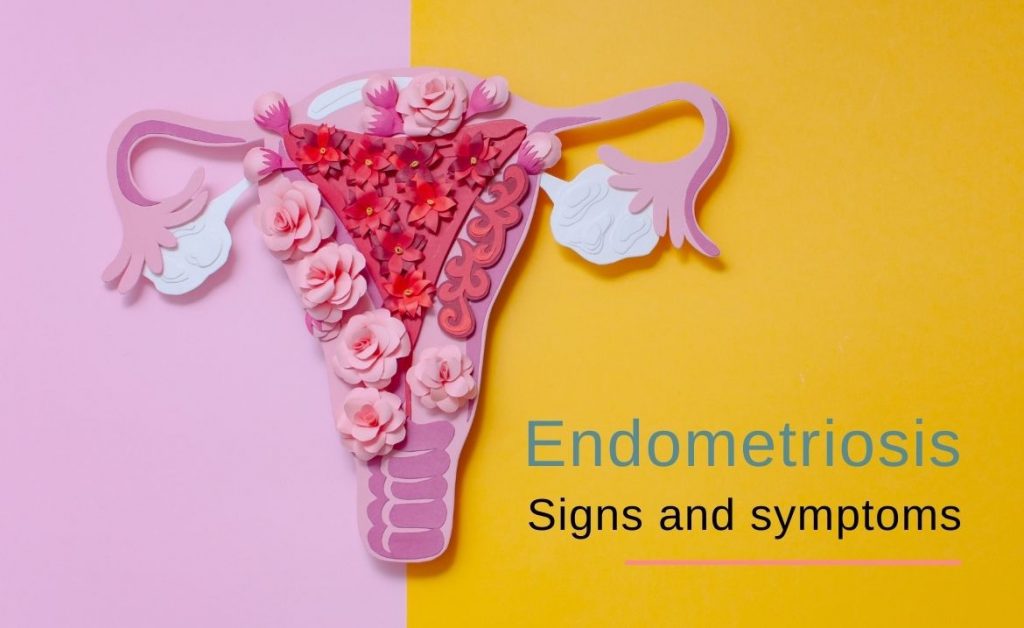Affecting one in nine women across Australia, endometriosis is a crippling women’s health condition. With so many women asking – how do I know if I have endometriosis?
In this article, we help answer this question by providing you with the signs and symptoms of endometriosis you need to look out for.
What is endometriosis?
Before we go any further, it’s essential for you to know what endometriosis is.
Endometriosis is a condition in which endometrial tissue grows outside the uterus and eventually sheds into the abdominal cavity causing
- chronic pain,
- abnormal periods,
- and possible infertility.
Whilst endometriosis most often affects the reproductive organs, it may also appear in the bowel and bladder, and on rare occasions, in muscles, joints, the lungs, and the brain.
There is currently no cure for endometriosis. But there are several treatment options available to help manage the symptoms.
What causes endometriosis?
While the exact cause is unknown, there are a few possible factors that may increase the risks, including
- If your mother or sister has it.
- Starting your period at a very early age (before the age of eleven).
- Delayed onset of menopause at an older age.
- Short menstrual cycles (less than 27 days).
- Frequently long and heavy periods that last more than seven days.
- Reproductive tract blockages or other ailments affecting blood flow out of the body.
What are the signs and symptoms of endometriosis?
An estimated 75% of women with endometriosis suffer from chronic pain. Although pain is one of the most common symptoms, it is not the only indicator. Many women will not experience any pain and only find out they have endometriosis when they are trying to fall pregnant. For more information on this – read our article on endometriosis and pregnancy.
So, you may wonder, what other symptoms of endometriosis should I look out for? It’s essential to remember that as all women and all bodies are unique, the range and severity of symptoms will vary from woman to woman.
Below are some of the most common signs and symptoms of endometriosis:
- Fatigue
- Severe pain during your period
- Pain during and around ovulation
- Pain during or after sex
- Experiencing pain during bowel movements
- Feeling pain when urinating
- Pain in your pelvic region, lower back, or legs
- Having trouble controlling a full bladder
- Heavy or irregular menstrual bleeding
Do you think you might have endometriosis?
If you suffer from any of the symptoms mentioned above or suspect you may have endometriosis, seek medical attention as early as possible to help minimise further complications.
Dr Kothari is highly experienced in women’s health treatment and care. He has taken appropriate training in assessing and diagnosing the symptoms of endometriosis.
Before moving ahead with treatment, Dr Kothari will first discuss what options are suitable for you based on your condition. He will advise you on the possible side effects or complications and outline any advantages and disadvantages of all types of treatments.
If you have any questions, need advice or medical attention contact our team on 02 4225 1999 to book an appointment.

